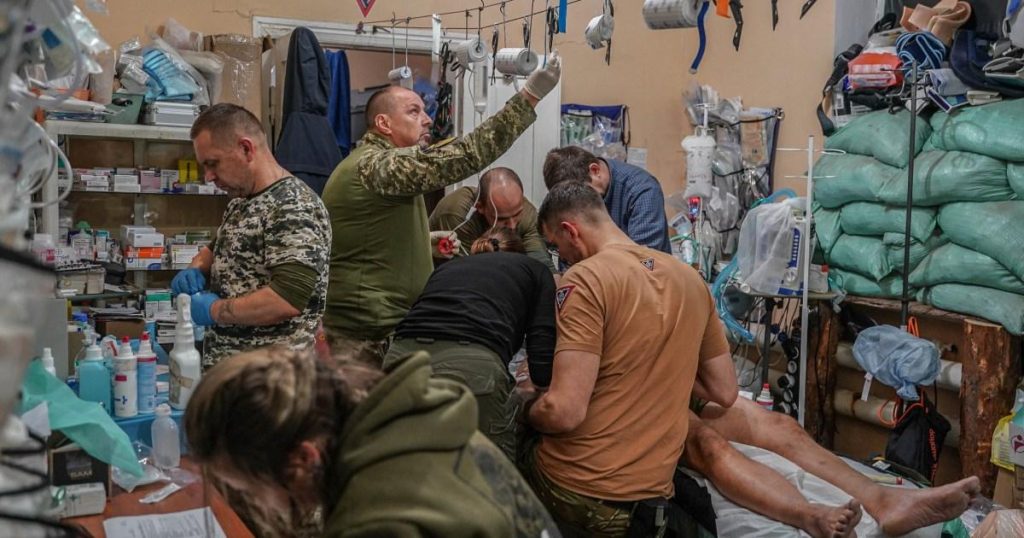The escalating conflict in Ukraine has inadvertently fostered a breeding ground for antimicrobial-resistant bacteria, posing a significant threat not only to the war-torn nation but also to the global community. The increased use of antibiotics in wartime, coupled with often compromised sanitation and healthcare infrastructure, creates an ideal environment for the emergence and proliferation of these dangerous superbugs. The concern is no longer theoretical but a tangible reality, as evidenced by the detection of these drug-resistant strains in hospitals across Europe, including Poland and Germany. The UK must proactively prepare for the inevitable arrival of these superbugs within its own borders, recognizing the transboundary nature of this threat and the potential for rapid dissemination within healthcare settings.
The emergence of these resistant bacteria is directly linked to the overuse of antibiotics in treating war-related injuries and infections. The more frequently antibiotics are employed, the greater the selective pressure exerted on bacterial populations, favoring the survival and propagation of resistant strains. This phenomenon is further exacerbated by the often chaotic conditions of wartime, where ideal hygiene practices and infection control measures may be difficult to maintain. The case of a Ukrainian soldier treated in Germany, harboring a strain of Klebsiella pneumoniae resistant to all tested antibiotics, underscores the gravity of the situation and the potential for these superbugs to circumvent even the most potent antimicrobial therapies.
The implications of this growing resistance are multifaceted and far-reaching. For Ukraine, the protracted recovery times and increased mortality rates associated with these infections place an immense strain on already limited medical resources and hinder the nation’s defense capabilities. For the rest of Europe and the world, the risk of these superbugs infiltrating healthcare systems and spreading among vulnerable populations presents a grave public health concern. The interconnected nature of modern travel and healthcare networks facilitates the rapid dissemination of these resistant strains, highlighting the urgent need for international collaboration and proactive surveillance measures.
The UK, in particular, must adopt a proactive stance to mitigate the potential impact of these superbugs. Implementing enhanced surveillance systems to rapidly identify and track the emergence of resistant strains within hospitals is crucial. This includes investing in rapid diagnostic tests, which can expedite the identification of these bacteria and enable timely intervention. Furthermore, strengthening infection control protocols within healthcare facilities is paramount to prevent the spread of these resistant organisms among patients. This entails reinforcing hygiene practices, optimizing antibiotic stewardship programs, and promoting responsible antibiotic use to minimize the selective pressure driving resistance development.
Beyond immediate measures within healthcare settings, a broader, more strategic approach is required. Supporting Ukraine in its efforts to combat antimicrobial resistance through the provision of resources, expertise, and training is essential. This includes assisting in the development of robust surveillance systems, promoting responsible antibiotic use practices, and strengthening infection control measures within Ukrainian hospitals. International collaboration and data sharing are vital to track the spread of these resistant strains and develop effective strategies for containment. This collaborative effort should involve research institutions, public health agencies, and governments worldwide, working together to address this shared global challenge.
Ultimately, combating the spread of antimicrobial resistance requires a multifaceted and sustained effort involving individual responsibility, public health initiatives, and international cooperation. Individuals can contribute by adhering to prescribed antibiotic regimens, refraining from sharing antibiotics, and practicing good hygiene. Public health agencies must prioritize surveillance, infection control, and responsible antibiotic stewardship programs. International collaboration is essential for sharing data, coordinating research efforts, and developing effective strategies for containment. By working together proactively, the global community can mitigate the threat of antimicrobial resistance and preserve the efficacy of these crucial life-saving medications for future generations.


